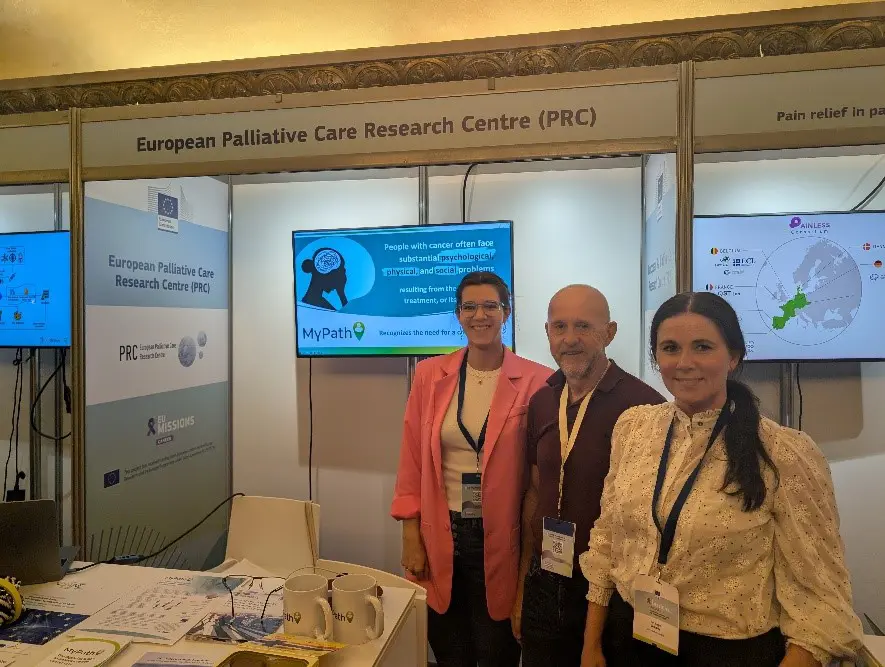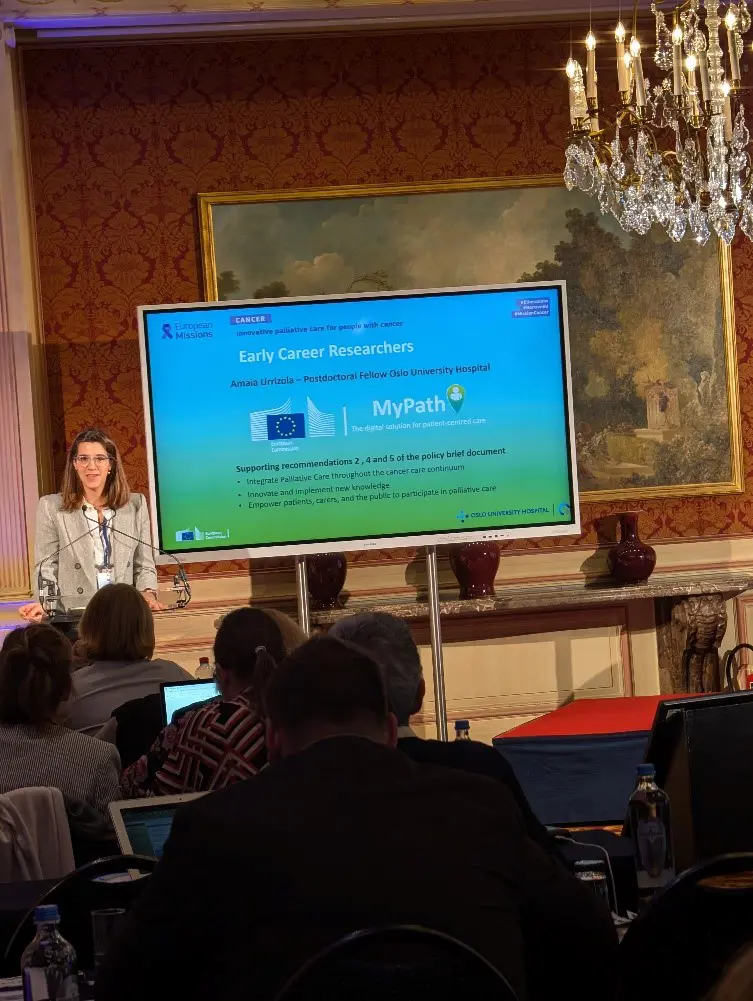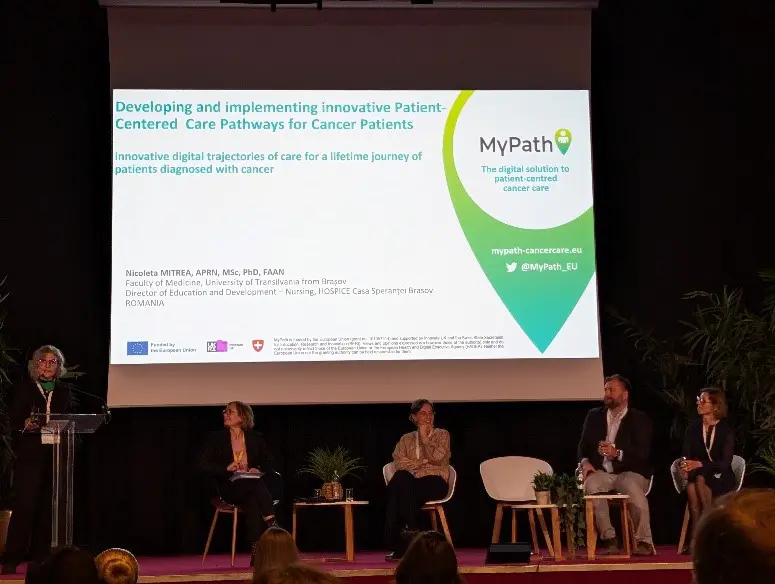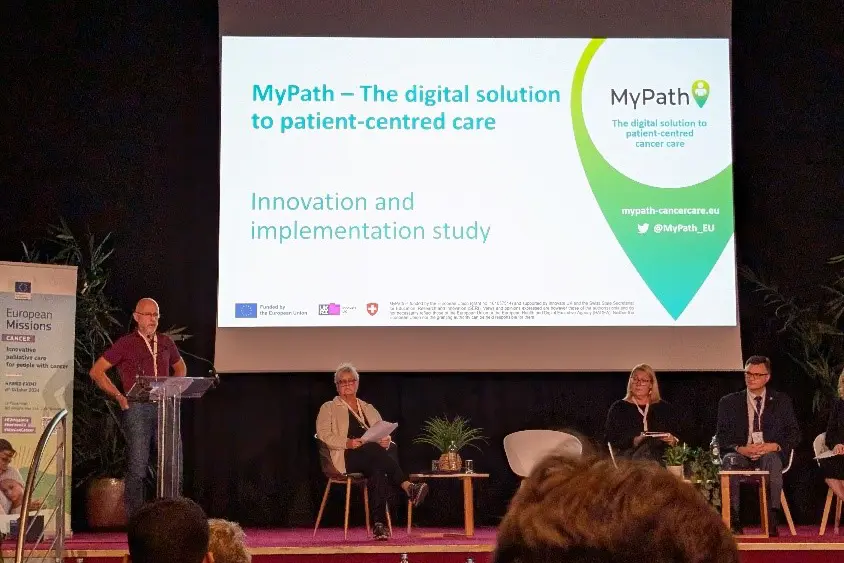The Innovative Palliative Care for People with Cancer Conference 7th and 8th of October 2024
The European Commission hosted the 7th and 8th of October the Innovative Palliative Care for People with Cancer conference. PRC/MyPath had a significant presence in the 2-day conference, being presented at several sessions by different partners, and through an information stand.
The European Commission hosted the 7th and 8th of October the Innovative Palliative Care for People with Cancer conference. With sessions focusing on ways to integrate palliative care throughout the cancer trajectory and how to overcome challenges to equal and equitable access, different solutions including innovative approaches and new technologies were presented.
The policy brief document developed in collaboration with researchers and experts on palliative care summarizing the evidence of palliative care and early integration was the thread of the conference. It entails six recommendations to overcome current and future challenges to integrate palliative care into cancer care. We encourage all to read this brief document for further discussion. All comments/feedback are appreciated here.
PRC/MyPath had a significant presence in the 2-day conference, being presented at several sessions by different partners, and through an information stand.

In the first day, MyPath was presented at the Early Career section. Amaia Urrizola portrayed MyPath as a key “vehicle” to support palliative care in the future. It’s role in ensuring that palliative and patient-centred care are implemented routinely and across the whole cancer continuum, and in empowering patients and caregivers, addresses important challenges highlighted in the policy brief document.

In the section “Future challenges in cancer palliative care: Changing demographics” Nicoleta Mitrea reflected upon the key role of research collaboration across Europe, particularly eastern European countries that tend to be left “aside”. MyPath was presented as an innovative technology to address some of the constantly evolving challenges in cancer care that comes with changing demographics.

Finally, Prof. Stein Kaasa, in the section “How Palliative care can be a natural part at all stages of cancer care” presented ways to overcome barriers to palliative and patient-centred care focusing especially on commercial and social determinants. Being an implementation science project MyPath was presented as a novel and sustainable solution to overcome these challenges to improved cancer care.

Stein Kaasa also presented the EU Joint Action on Networks of Expertise (JANE-2) which aims at establishing seven Networks of Expertise in the cancer field. JANE-2 will start November 1 and OUS is leading the work package on Palliative Care.